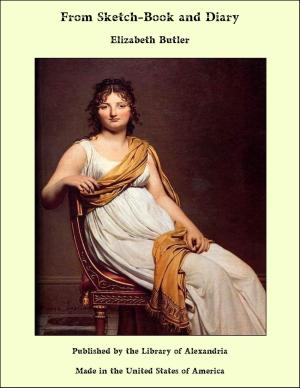Eighteen Treatises From the Mishna
Nonfiction, Religion & Spirituality, New Age, History, Fiction & Literature| Author: | D. A. Sola | ISBN: | 9781465533678 |
| Publisher: | Library of Alexandria | Publication: | March 8, 2015 |
| Imprint: | Language: | English |
| Author: | D. A. Sola |
| ISBN: | 9781465533678 |
| Publisher: | Library of Alexandria |
| Publication: | March 8, 2015 |
| Imprint: | |
| Language: | English |
THE circumstances which gave rise to the translation of the following portions of the Mishna, deserve a brief record in the annals of Jewish History, and are as follows:— During one of the public discussions that took place at the vestry hoard of the Sphardim Synagogue, on the subject of revising the liturgy used in that Synagogue, and for improving its Public Worship, the opponents to alteration took shelter under the authority of the Mishna, and this led the advocates of improvement to express their long entertained doubts as to the divinity of the Oral Law. These gentlemen, on being taunted with using arguments derived from partial extracts furnished by Christian writers, urged the necessity of being supplied with an English translation from persons of their own faith. In consequence of this application, the meeting passed a resolution authorising the Rev. D. A. De Sola to translate the Mishna. Mr. De Sola having at the same time been empowered to call in a coadjutor, made choice of the Rev. M. J. Raphall, and the following translation (comprising such parts of the work as more immediately relate to Israel in their present dispersion) is the production of their joint labours. [*1] There can be no doubt that to the Israelite, who believes in the divinity of an Oral Law—who thinks the salvation of his soul depends on such belief—but to whom the Mishna in the Hebrew is a sealed book—there can be no doubt that to such a man, if he be rational as well as pious, the present translation must be highly acceptable, as mere belief in the contents of a book not understood can confer no claim to heavenly reward. To his co-religionist, equally unacquainted with the Hebrew, who thinks that a doctrine involving the soul’s salvation or perdition should rest, not on presumptive but on demonstrative proof, and whose scepticism is grounded on the expressive silence of God, of Moses, and of the Prophets, as to the existence of two divine codes—equally acceptable to him must be a publication which throws light on a subject of such deep spiritual interest. And as the entire Mishna has been translated by our continental brethren into German, it is to be hoped that the whole will be rendered into English for the enlightenment of the British Jew, who will thereby be enabled to read a book said to contain God’s explanation of the Written Law. We find the holy pages of the Pentateuch, the Prophets, and the Hagiography, open for his instruction, comfort, and consolation; and the same free access should be given to pages containing so large a portion of the Oral Law, for which a Divine origin is also claimed. Tebet, 5603.—December, 1842
THE circumstances which gave rise to the translation of the following portions of the Mishna, deserve a brief record in the annals of Jewish History, and are as follows:— During one of the public discussions that took place at the vestry hoard of the Sphardim Synagogue, on the subject of revising the liturgy used in that Synagogue, and for improving its Public Worship, the opponents to alteration took shelter under the authority of the Mishna, and this led the advocates of improvement to express their long entertained doubts as to the divinity of the Oral Law. These gentlemen, on being taunted with using arguments derived from partial extracts furnished by Christian writers, urged the necessity of being supplied with an English translation from persons of their own faith. In consequence of this application, the meeting passed a resolution authorising the Rev. D. A. De Sola to translate the Mishna. Mr. De Sola having at the same time been empowered to call in a coadjutor, made choice of the Rev. M. J. Raphall, and the following translation (comprising such parts of the work as more immediately relate to Israel in their present dispersion) is the production of their joint labours. [*1] There can be no doubt that to the Israelite, who believes in the divinity of an Oral Law—who thinks the salvation of his soul depends on such belief—but to whom the Mishna in the Hebrew is a sealed book—there can be no doubt that to such a man, if he be rational as well as pious, the present translation must be highly acceptable, as mere belief in the contents of a book not understood can confer no claim to heavenly reward. To his co-religionist, equally unacquainted with the Hebrew, who thinks that a doctrine involving the soul’s salvation or perdition should rest, not on presumptive but on demonstrative proof, and whose scepticism is grounded on the expressive silence of God, of Moses, and of the Prophets, as to the existence of two divine codes—equally acceptable to him must be a publication which throws light on a subject of such deep spiritual interest. And as the entire Mishna has been translated by our continental brethren into German, it is to be hoped that the whole will be rendered into English for the enlightenment of the British Jew, who will thereby be enabled to read a book said to contain God’s explanation of the Written Law. We find the holy pages of the Pentateuch, the Prophets, and the Hagiography, open for his instruction, comfort, and consolation; and the same free access should be given to pages containing so large a portion of the Oral Law, for which a Divine origin is also claimed. Tebet, 5603.—December, 1842















